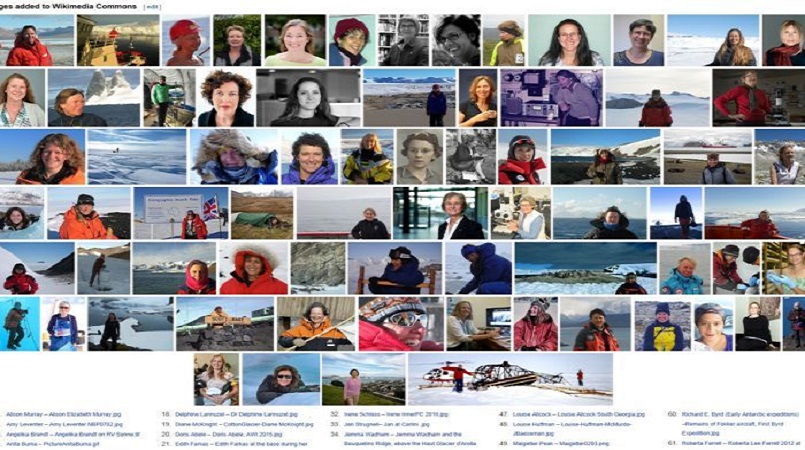
A group of Australian female scientists have taken part in a Wikibomb in an effort to be recognised for their contribution to Antarctic research.
As part of the event, which took place at the Scientific Committee on Antarctic Research conference in Malaysia, 93 Wikipedia profiles were created and 20 were improved upon.
Dr Justine Shaw, an Antarctic researcher and University of Queensland fellow, said it was important to raise the scientists' profiles and provide more visible female role models for early career scientists.
She said Wikipedia was chosen due to its broad public reach.
"It's a universal platform and it's across disciplines and you don't have to be part of an academic institution to have access to it," Dr Shaw told 612 ABC Brisbane's Sarah Howells.
"We had to nominate the women and then the profiles went through independent reviews through Wikipedia."
Dr Jan Strugnell and Dr Thomas Shafee from LaTrobe University coordinated a team of 27 volunteers from around the world to research, write and upload the biographies.
Celebrating female role models in science
Dr Shaw said initiatives such as the Wikibomb were important to publicly showcase what women were achieving in the field of science.
"We want to tell the world about the many great and generally under-recognised female Antarctic research role models there are," Dr Shaw said.
"In Australia, our new chief scientist at the Australian Antarctic Division is a woman — but we still have a long way to go.
"There is a leaky pipeline from female students to science leadership roles across all disciplines."
Women scientists were effectively locked out of Antarctica until 1956.
"We wanted to profile women across the Antarctic research space to get more reach of the impact that these women have made," Dr Shaw said.
"You can't be what you can't see, so if we can't see senior women research scientists, then many think they can't be one."
Being a researcher at the bottom of the world
Dr Shaw said there were pros and cons to working in Antarctica and at times it had been tough.
"[But] it's important that we have a presence and to be aware of what's happening there," she said.
"Just because people don't live there doesn't mean it's protected or safe."
